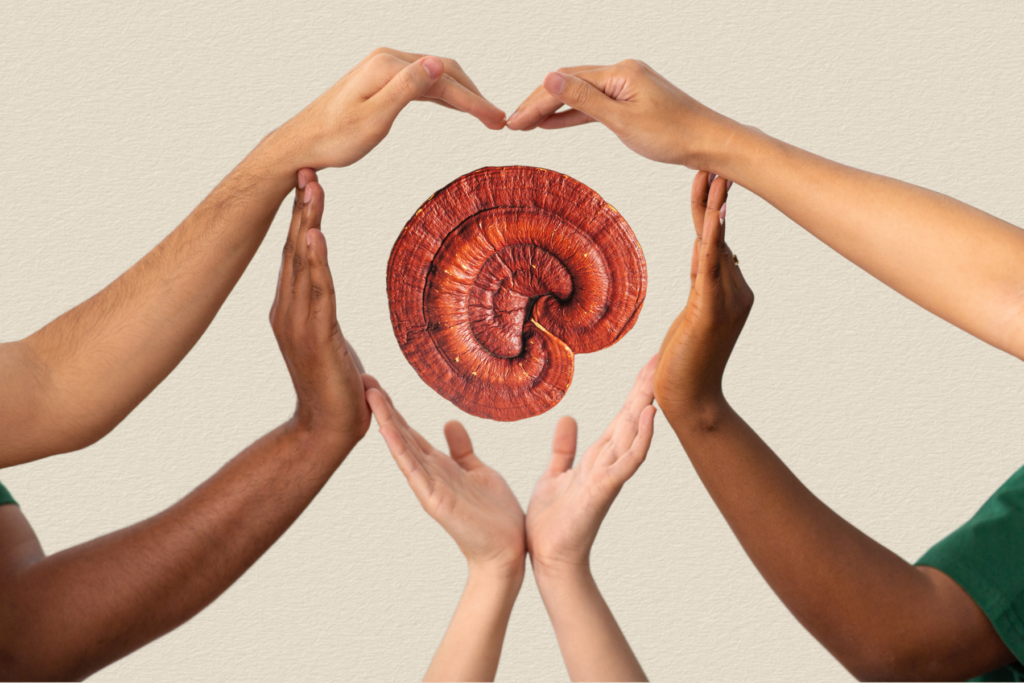After understanding how reishi is cultivated sustainably, let’s talk about how this mushroom should be consumed to yield its full effects. Because Reishi is always dry-preserved after harvest, the traditional consumption method is to break up the herb into pieces, decoct it for several hours (often double boiling) and then drink the soup. This is however a very unappetizing way to consume as the active ingredients of reishi are very bitter in nature, and can be off-putting to many.
Fortunately, as technology advances, reishi extracts are now readily available in the form of essence powder. Similar to how herbal granules are produced, the extraction process begins by cutting up the fungus and processing it with the hot water extraction method. A simplified version of this method is boiling the herbs in hot water for several hours until all the active ingredients are extracted. The solution is then reduced to a highly concentrated powder.
The concentrated powder can either be used by TCM practitioners or is then encapsulated for those who do not prefer the bitter taste. It is important to note that high quality reishi products will only contain essense of a mature fruiting body of reishi that has undergone hot water extraction. Without breaking down this herb, your body is unable to absorb the active ingredients. There are many product in the market that offer reishi alternatives but they are not all equal in quality.





